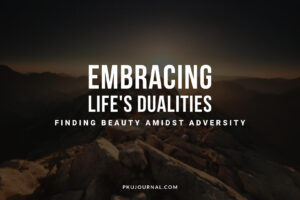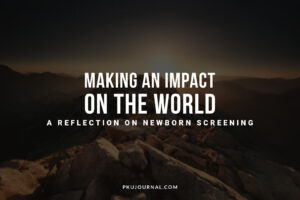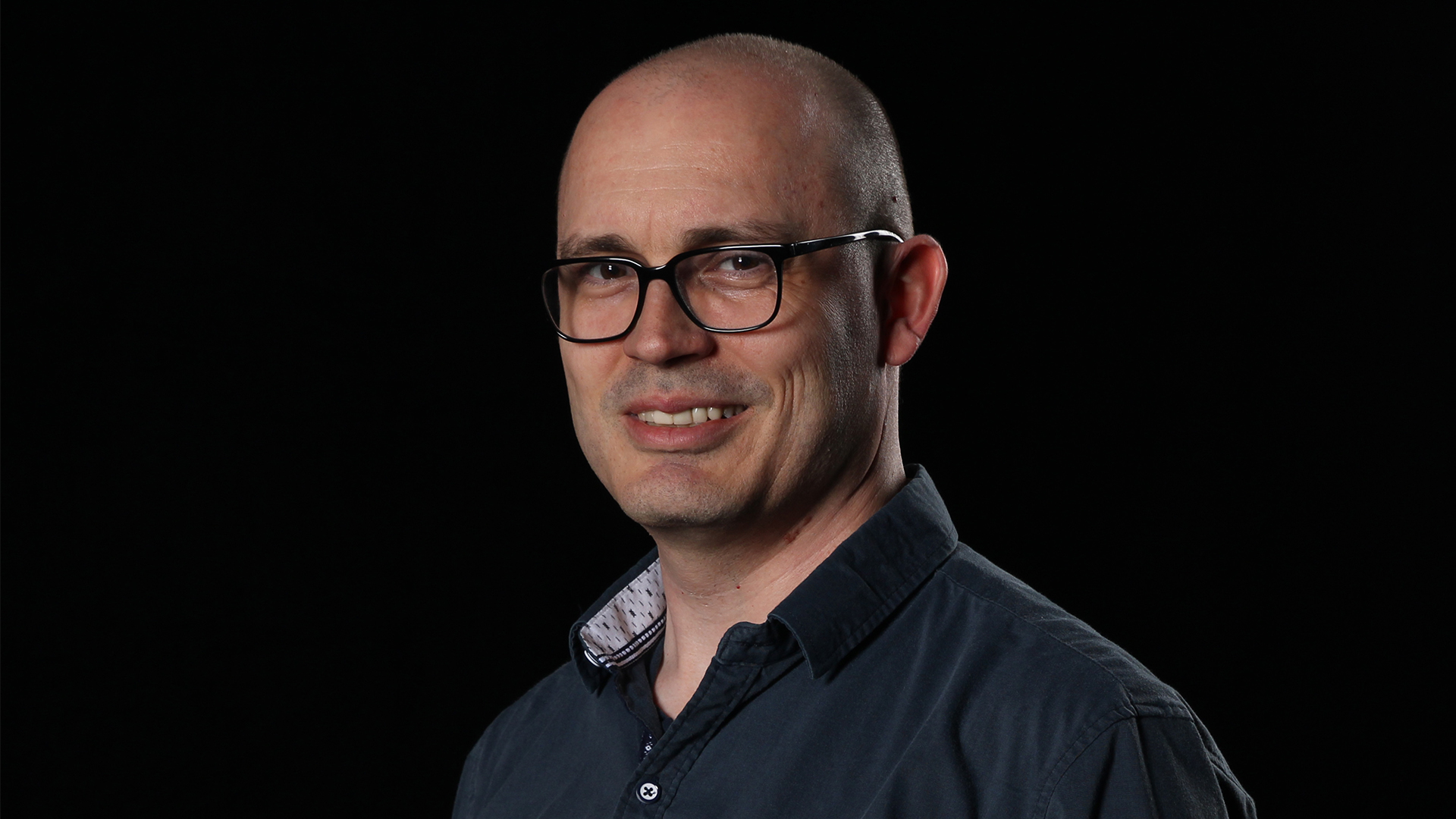I was diagnosed with PKU at 9 days old thanks to newborn screening. Newborn screening saved my life, but I know that not everyone has the same experience. Throughout 2023, as we celebrate 60 years of newborn screening in the US, I’m reflecting on the many perspectives of newborn screening: joy, pain, and hope. We have come a long way, but we still have much work to do. Join me in raising awareness for newborn screening and ensuring that every baby has the opportunity to thrive.
60 Years of Newborn Screening
If you prefer listening instead of reading, this article is now an episode of my podcast.
Life is about perspective. Or rather, recognizing that your perspective isn’t all that exists.
I’ve reflected on this recently. A lot. Because all year I’ve eagerly anticipated the arrival of September—Newborn Screening Awareness Month. And 2023 marks 60 years of newborn screening in the United States. What I’ve been thinking about—what consumes me—is that there are many perspectives of newborn screening.
Patients. Parents. Caregivers. Patient Advocates. Doctors. Researchers. Lab workers. Administrators. Policymakers. Non-profit organizations. Industry partners.
But there’s another way to view newborn screening. Two perspectives, really, that appear to be polar opposites. Those for whom newborn screening is a source of joy. And those for whom it is pain. Deep, abiding pain.
At the Celebration of the 50th Anniversary of Newborn Screening on Capitol Hill in 2013, hosted by the Association of Public Health Laboratories (APHL).
When I entered the world of newborn screening advocacy in 2012, the truth is I only saw my perspective of newborn screening. I had spent my entire life taking it for granted, even though I was diagnosed with Phenylketonuria (PKU) when I was nine days old.
I received my diagnosis because of newborn screening. I was sent to a genetics clinic at Tulane Medical Center in New Orleans, put on treatment for PKU, and grew up into an adult with a good education and solid career. Because of newborn screening.
Newborn screening saved my life.
And so, early on in my newborn screening advocacy, even as I worked to raise awareness so that every baby born in the world might be screened… I still only saw it as a source of joy.
It was hard for me to deal with this reality…
For parents of children who receive no screening, or a delayed diagnosis due to cracks in the newborn screening system… Newborn screening is a subject that causes pain. Lifelong pain.
I’ve been away from the world of newborn screening advocacy for a few years. My activities as an advocate ramped up in 2013 for the 50th anniversary in the US (and shared my story in this book published by APHL). And I was still involved for the next couple of years.
But eventually—due to life, work, and time constraints—I chose to focus all of my energies on a specific project for the PKU community. It’s a campaign launched in 2015 by the National PKU Alliance called Lifting the Limits for PKU. And that project opened my eyes to yet another perspective.
PKU is considered a newborn screening success story. And it is. We receive our diagnosis because of newborn screening, we have treatment options, and children today can grow up into healthy adults. But there’s another side of this PKU life.
As I traveled across the country, producing fundraising films for the Lifting the Limits for PKU campaign, I interviewed many PKU parents. And while they are forever grateful for newborn screening, it is still a source of pain. They will never forget the phone call: “There is a problem.” Some shut themselves away for a week. All struggled to accept a new reality in their lives as they battled their fear: “Am I capable of raising this child?”
A child born with PKU only knows one reality. Their life with PKU is their “normal” experience. But the parent remembers life before.
These experiences inspired an episode of my podcast called Never Give Up: A Rare Disease Podcast (available on Apple Podcasts and Spotify). In it, I explored the intersection of the rare disease life and trauma. The episode is called Overcoming Trauma and Embracing Life.
Our struggles continue daily for the PKU community. We’re fighting for access to our medications for all who live in the US. We still fight for the Medical Nutrition Equity Act so that those with PKU don’t have to worry about brain damage and other side effects from not receiving their PKU medical drinks (insurance companies frequently do not and are not required to cover those essential prescriptions). Check out this site from Patients & Providers of Medical Nutrition Equity for more info about the Medical Nutrition Equity Act (MNEA).
So, as we celebrate 60 years of newborn screening in the US, I am not just thinking about my experience.
I was diagnosed thanks to newborn screening.
Others weren’t.
I have treatment for my rare disease.
Others don’t.
I can get my PKU prescriptions.
Others can’t.
Yes, I celebrate and am thankful for newborn screening. It saved my life. And I’m thankful for my experiences as a PKU, newborn screening, and rare disease advocate. Those experiences have taken me across the world and introduced me to many people in the community—some of whom I now consider dear friends.
But I’m also thinking of the children in the world who don’t receive newborn screening at all. Or those right here in the US who do, but their rare disease isn’t on the Recommended Uniform Screening Panel, so they don’t receive a diagnosis at birth.
Both perspectives are essential.
We can reflect and be thankful for what the newborn screening system has done. It has changed the lives of a generation.
But we still have much work to do, for those born today… And for generations yet to come.
I originally wrote this as an article for this blog, before turning it into an episode of my podcast. I shared it on social media at the beginning of Newborn Screening Awareness Month in 2023. I connect with the patient population in our community on Facebook and Instagram.
But on LinkedIn, I’m connected with those who work in the field of newborn screening and others in the medical community. I’ve been around this world since 2012 and am a member of the International Society of Neonatal Screening.
After seeing this story shared by those who work in the field, I am reminded of why I’m involved in newborn screening advocacy.
Yes, my role as a patient advocate comes first, and I am honored to represent the PKU community and other patient populations in my work.
But the speeches I’ve given, where I speak to doctors, researchers, lab workers, and others who have devoted their lives to this field…
When I look them in the eyes, and connect with them on a human level, and say, “Thank You”…
It means the world to me.
Newborn screening saves lives. It saved mine. It’s the reason I can speak to you now, and share my story. It’s also the reason I speak for those who can’t speak up themselves—to share their stories.
Every story matters.
Every person matters.
And we need to do whatever we can to make sure that newborn screening works for everyone.











Leave a Reply